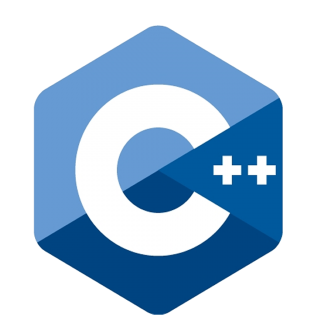3 May 2023
Reference in C++
Reference in C++

Keypoints
- Basic syntax
- Attention
- Reference as function parameter
- Reference as function return value
- Essence of reference
- Constant reference
Basic syntax
- Function: to call other name for a variable
- Syntax:
type &new_name = old_name; - Example:
int x = 5; // initialize x
int &y = x;
y = 10;
cout << x << endl; // 10
Attention
- Reference is not a new variable, it is just another name for the same variable.
- Reference must be initialized when it is created and cannot be changed after initialization.
int x = 5;
int &y; // error: y must be initialized
int &y = x;
int z = 10;
int &y = 10; // error: y cannot be initialized by constant, has to be an address
int &y = z; // error: y cannot be changed after initialization
y = z; // y is still x, but with value of z
cout << x << endl; // 10
cout << y << endl; // 10
cout << z << endl; // 10
Reference as function parameter
- Pass by reference (reference as function parameter). Similar to pass by pointer and also be able to change the value of the original variable.
- Syntax:
void func(type &var); - Example:
void swap(int &x, int &y) {
int temp = x;
x = y;
y = temp;
}
int main() {
int a = 5, b = 10;
swap(a, b);
cout << a << endl; // 10
cout << b << endl; // 5
return 0;
}
Reference as function return value
- Return by reference (reference as function return value). Similar to return by pointer and also be able to change the value of the original variable.
- Syntax:
type &func(); - Example:
int &func(int &x) {
x++;
return x;
}
int main() {
int a = 5;
func(a) = 10;
cout << a << endl; // 10
return 0;
}
- Don’t return reference of local variable.
int &func() {
int x = 5;
return x; // error: x is local variable, it's in stack and will be destroyed after function call
}
int main() {
int &y = func();
cout << y << endl; // right, but y will be destroyed after once call
cout << y << endl; // error: y is reference of local variable
return 0;
}
- Fcuntion calling itself.
int &func() {
static int x = 5; // static variable isn't in stack, it's in global area. So it won't be destroyed after function call by compiler.
return x;
}
int main() {
int &y = func();
cout << y << endl; // 5
cout << y << endl; // 5
func() = 10; // function() return a reference of x
cout << y << endl; // 10
cout << y << endl; // 10
return 0;
}
Essence of reference
- Reference is just a pointer in essence.
- Example:
int x = 5;
int &y = x; // int *const y = &x;
int *z = &x;
y = 10; // *y = 10;
cout << &x << endl; // 0x7ffeeb0b0a3c
cout << &y << endl; // 0x7ffeeb0b0a3c
cout << z << endl; // 0x7ffeeb0b0a3c
Constant reference
- Constant reference: reference of constant variable to avoid changing that value.
- Syntax:
const type &new_name = old_name; - Example:
void showValue(const int &x) {
x++; // error: x is constant
cout << x << endl;
}
int main() {
int a = 5;
showValue(a); // 5
return 0;
}

